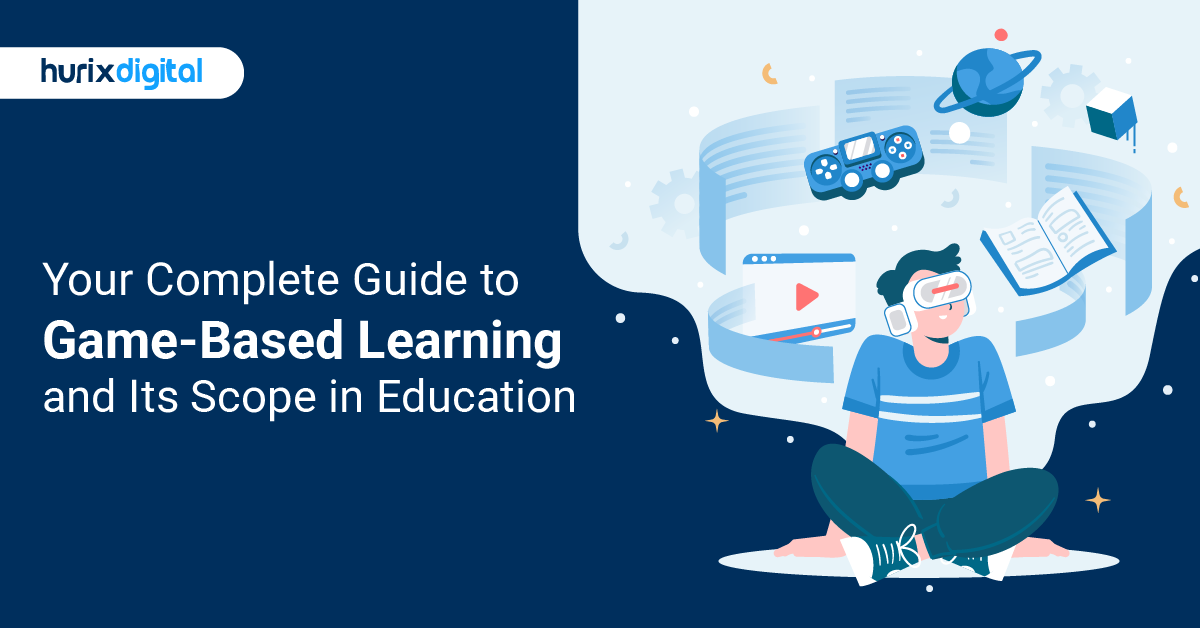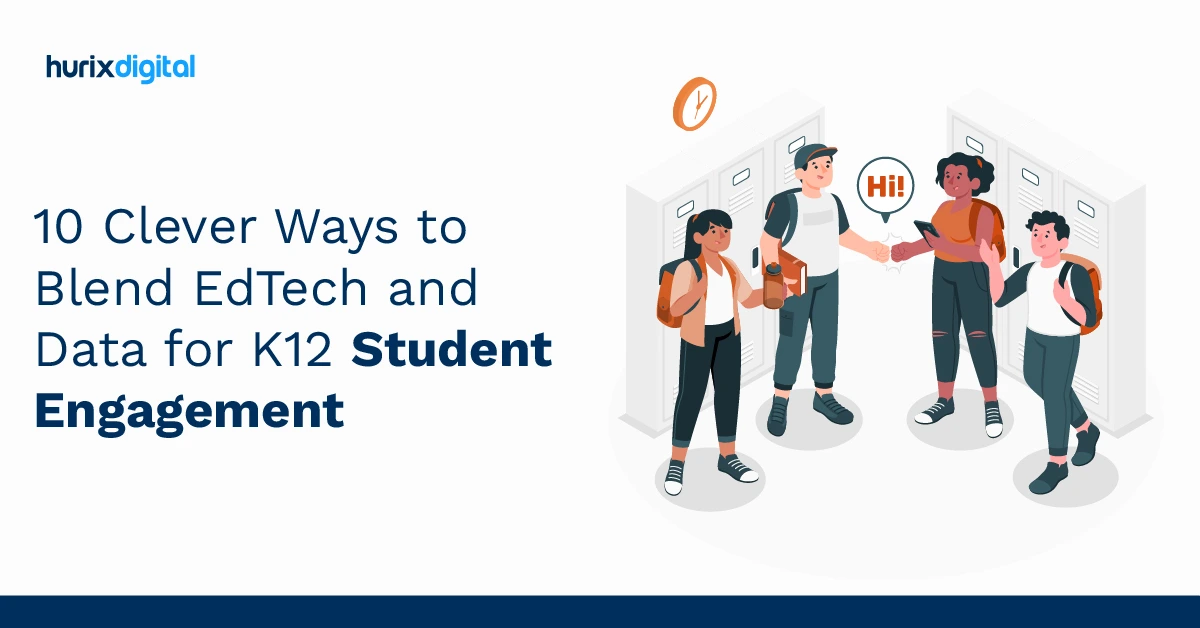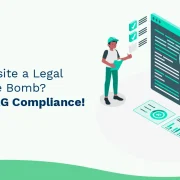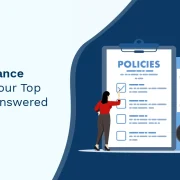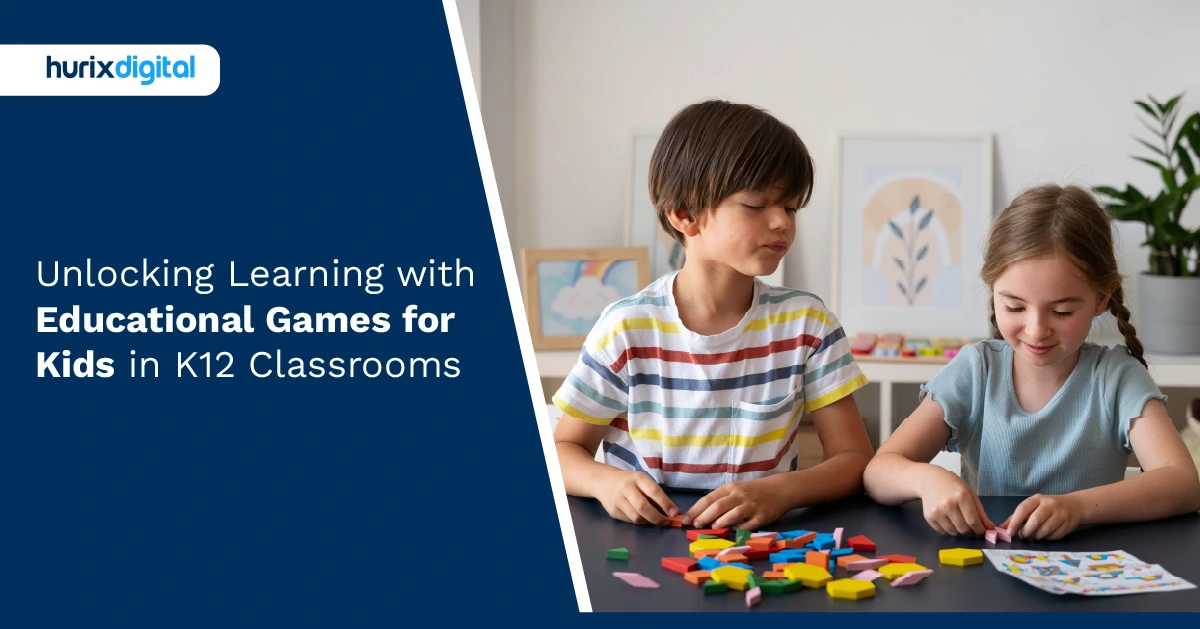
Unlocking Learning with Educational Games for Kids in K12 Classrooms
Gamification in education has a long history. Research shows that using games to teach (gamification in education) has been a widespread practice for thousands of years. Over the past few decades, gamification in education has accelerated like never before.
K12 students must develop critical thinking skills to thrive in today’s digital world. Educators rightly recognize this and are leveraging all tools at their disposal, including K12 learning games. Game-based learning is one of the most promising tools, as it combines educational instruction with playful entertainment.
Critical thinking has now become one of the most needed skills for K12 students. The most recent survey on employment indicates that nowadays employers consider critical thinking abilities and other qualities while hiring an employee. Educators have begun discovering creative ways to engage in teaching skills ahead of the future. Some of the educators have introduced game-based learning in their classrooms.
K12 online learning games are the perfect interface for creatively blending educational content with interactive gameplay, which can help nurture critical thinking, problem-solving skills, and decision-making capacities enjoyably and richly.
Read on for the best practices for integrating game-based learning in education!
Table of Contents:
- Brief History of Game-Based Learning in the Classroom
- The Intersection of Video Games and Critical Thinking
- Top 8 Benefits of Educational Video Games in K12 Learning
- Games Make K12 Learning Fun
- Educational Video Games Supplement Existing K12 Solutions
- Game-Based eLearning Enhances Problem-Solving & Strategic Thinking Skills
- Educational Games for Students Online Expand Memory Capacity
- Game-Based Learning in Education Bolsters Computer Literacy
- Game-Based Learning Solutions Help Students Learn from Failure
- Top K12 Education Companies Offer Video Games That Help Students Learn to Multitask
- Games as a Component of K12 Learning Can Cultivate a Love of Learning
- 10 Tips for Choosing the Right Games to Support the K12 Curriculum
- Review K12 Curriculum Before Selecting Digital Learning Games
- Identify Learning Objectives for Curriculum Integration
- Research Educational Content to Ensure Student-Centered Learning
- Evaluate Monitoring and Assessment Tools Within Digital Learning Games
- Look for Games with Real-World Relevance and Curriculum Integration
- Assess Suitability
- Confirm Digital Learning Games Provide Accessibility and Availability
- Take Advantage of Free Demos from Digital Learning Providers
- Ask for Peer Recommendations
- Select Games from Leading Digital Curriculum Providers
- How Game-Based Assessments Help Educators Adapt to Student Needs?
- To Sum Up
Brief History of Game-Based Learning in the Classroom
It is necessary to reiterate that game-based learning in education is not a new concept. Research suggests that games have been used to teach students in Africa for thousands of years. Likewise, games and play-based learning were used in ancient Greece and during the Roman Empire. From puzzle and shape games to spelling contests, matching games, and memorization games, educators have long embraced the game-based learning method. Today, thanks to technology, online game-based learning games are used by more than half of educators worldwide.
The Intersection of Video Games and Critical Thinking
The educational game is not a video game per se. Instead, it helps further impart knowledge to students by transforming the tedious practice or repetition needed in the process of learning into a full-blown problem-solving exercise.
They are games to improve logical thinking, which involves puzzle-solving mechanisms and challenges that help students think on the move and use the information they learn. This kind of exercise will challenge the student to:
- Analyzing Information: They have to sift through data, look for patterns, and draw conclusions.
- Evaluate Arguments: The students learn to judge which perspective is the most realistic.
- Problem-Solving: Games most often present dramatic situations that require students to devise unorthodox solutions and think creatively.
- Choice-Making: The students have numerous choices, and they have to weigh the effects and choose the most strategic alternative.
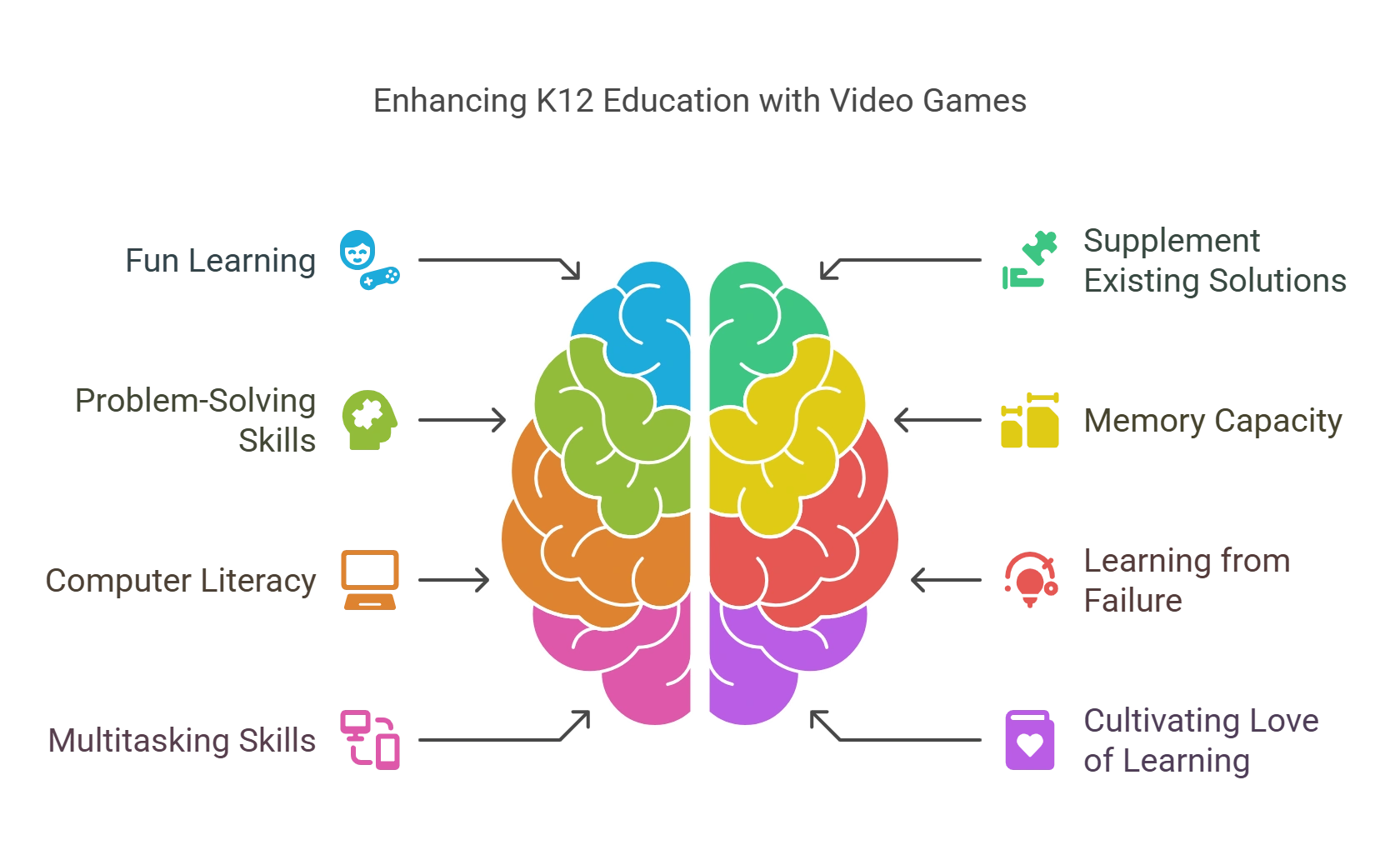
Top 8 Benefits of Educational Video Games in K12 Learning
The value of games in K12 learning cannot be underscored. Fortunately, educators, parents, and guardians have more options available today than ever. Indeed, the top K12 education companies are providing K12 learning solutions that enhance and supplement in-class instruction on subjects ranging from Math to History. But how exactly does game-based learning help students?
1. Games Make K12 Learning Fun
Multiple studies have shown that students learn complex information best when they are enjoying themselves. In other words, when learning is fun, students are more likely to engage in the material. This may be partly traced to the fact that for many students, playing a game improves mood. The brain becomes more flexible when in a good mood, allowing students to grasp more complex concepts.
2. Educational Video Games Supplement Existing K12 Solutions
If the COVID-19 pandemic taught us anything about education, it is that students need classroom instruction or they risk falling behind. However, educational video games are not designed to replace traditional classroom instruction. Rather, educational games for kids online are merely meant to supplement traditional, proven K12 solutions.
Consider game-based learning solutions as the perfect accompaniment to textbook assignments. This may be especially true for young learners. For example, upon completion of maths problems in a textbook, young learners can reinforce what they have learned by playing an engaging maths video game. In doing so, educators can confirm that their students have retained the information from the book and that knowledge is now transferable to a game, and ultimately transferrable to life beyond K12 learning environments.
3. Game-Based eLearning Enhances Problem-Solving & Strategic Thinking Skills
Game-based e-learning affords experiential learning, helping students to develop problem-solving and strategic thinking skills. These creative problem-solving skills help the student not only thrive in academia but also prepare them for life beyond the classroom. This unique feature is not by accident. The top K12 education companies recognize the value of games in education should not be limited to K12 learning. The games should have long-term, real-world usefulness.
Consider, for example, a history game designed by one of the leading K12 EdTech companies. In the game, student players are tasked with settling a new colony. What will they need to survive? Will they partner with others, or attempt to build a colony alone? What tasks will they need to prioritize? Should they plant crops, or is it more beneficial to hunt or to fish? Learning to think strategically and critically is a key benefit of game-based e-learning.
4. Educational Games for Students Online Expand Memory Capacity
Educational games for kids online require students to memorize facts, figures, locations, events, equations, formulas, shapes, categories, and much more. The top K12 education companies offer game-based learning solutions customized for each age. Young students may begin strengthening their memory by matching shapes, sizes, and colors. Older students may be tasked with recalling instructions or information presented earlier in a game to advance to the next level.
Indeed memory is bolstered through games. One study published in the journal Behavioral Brain Research found that “In a learning test, people who play video games performed better than those who don’t, and their brains appeared to be more active in regions linked to learning and memory.”
5. Game-Based Learning in Education Bolsters Computer Literacy
Students who are not computer literate will struggle not only in school but in life after school. For this reason, well-rounded K12 learning curricula prioritize computer literacy. Game-based e-learning unequivocally helps bolster computer literacy, as students must know how to type, employ keyboard skills and shortcuts, begin a new game, advance to the next level, or replay a game.
6. Game-Based Learning Solutions Help Students Learn from Failure
The lessons learned by failing are often underreported. However, learning to try again, instead of giving up after a failure is a key value of games in education. After all, learning to accept their own mistakes, and learn from them is an invaluable tool that will benefit students long after the completion of their formal K12 learning experience.
Prominent video game theorists have also postulated that losing in a game is one of the reasons that students stay so engaged with game-based e-learning. The perceived “threat” of failing in a game may keep students riveted, while the opportunity to immediately “redeem” themselves by succeeding in their second or third attempt allows them to learn from mistakes.
7. Top K12 Education Companies Offer Video Games That Help Students Learn to Multitask
Whether a student is trying to solve various math problems in a timed session or trying to organize objects by color and shape, game-based learning requires students to multitask. Learning to process more than one project at a time will benefit students by training the brain to work more efficiently. In other words, the act of multitasking paves the way for increased productivity and creativity in both K12 learning and life after formal education.
According to a report, “the encouragement of multitasking and quick decision-making has helped students think creatively and better address unexpected events. Video games have also been shown to boost multitasking and learning ability by stimulating the brain’s frontal lobe.”
8. Games as a Component of K12 Learning Can Cultivate a Love of Learning
Many studies have found that game-based learning in education shows numerous positive correlations between playing games and enjoying learning. The reason? Students find games both stimulating and motivating.
Developing a love of learning early in life offers long-term benefits, including a desire to acquire new skills or knowledge and an eagerness to build on existing knowledge. Moreover, research suggests that those who love learning also benefit from feeling a sense of autonomy, excitement about possibility, and positive feelings about learning new things.
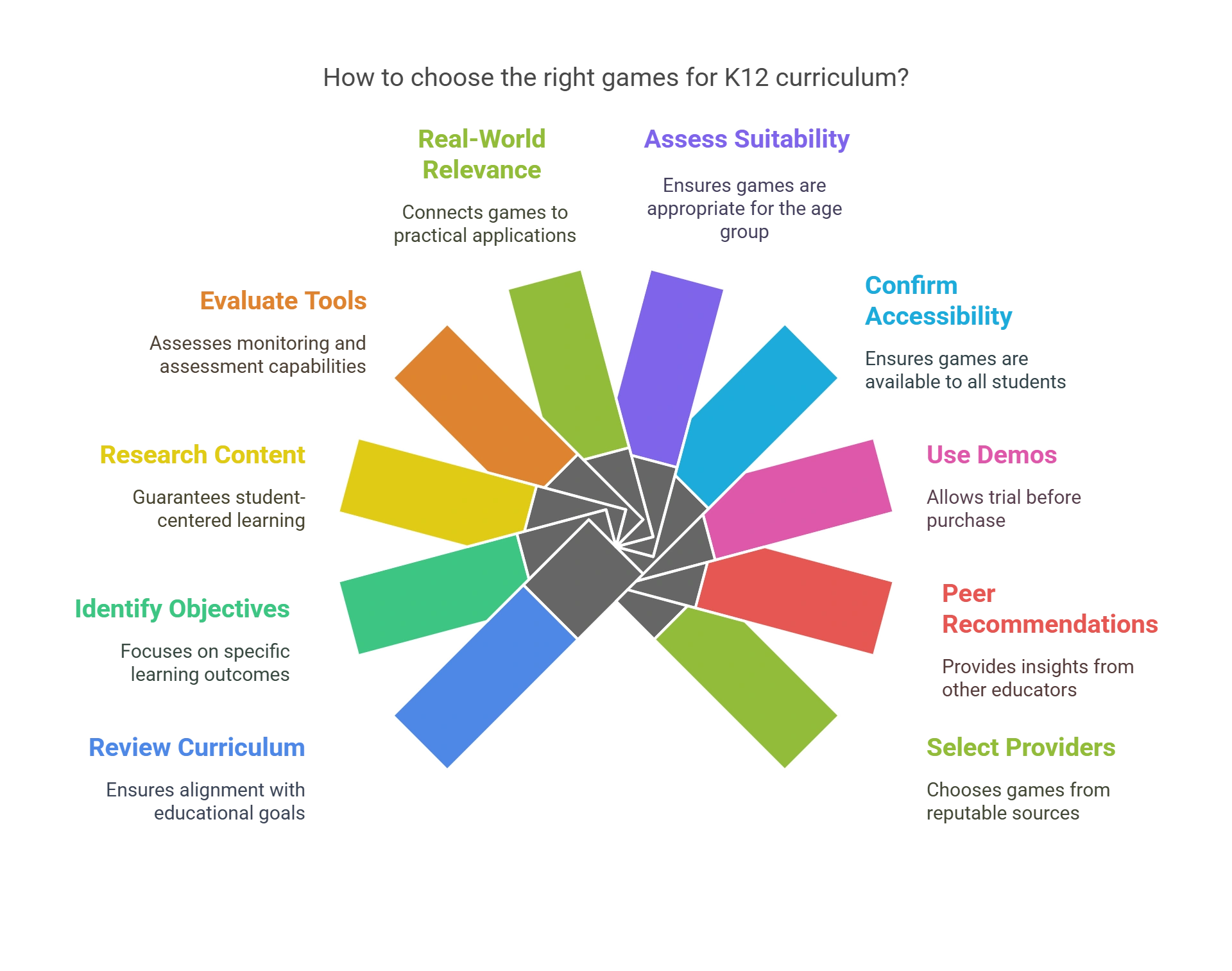
10 Tips for Choosing the Right Games to Support the K12 Curriculum
Here are some industry-tested ways to find the perfect game for your curriculum:
1. Review K12 Curriculum Before Selecting Digital Learning Games
Before beginning your search for educational games for kids that provide robust student-centered learning opportunities, it’s smart to review the appropriate K12 curriculum. That way, you won’t waste time researching digital learning games that are not suited for your classroom curriculum integration.
2. Identify Learning Objectives for Curriculum Integration
Before integrating educational games into the classroom, it is necessary to identify the learning objectives that align with the K12 curriculum. Once you’ve compiled the learning objectives students must achieve, you’ll be able to begin your search for educational video games that will reinforce these learning objectives.
For example, you may decide that a class would benefit from engaging in video games in the classroom that align with the Maths curriculum. Or, you may have students who are struggling to engage with History in a textbook, and interactive gameplay might help to pique interest.
Some students may need help developing critical thinking skills. Regardless of your unique goals, clarifying the learning objectives before you begin pursuing offerings from digital curriculum providers can save time and make choosing the right games easier.
3. Research Educational Content to Ensure Student-Centered Learning
When selecting video games that line up with the K12 curriculum, you should prioritize the educational content afforded by a game-based learning tool. Reading summaries of various game-based learning games should tell you what the students will do in the game and what they will learn in the game.
4. Evaluate Monitoring and Assessment Tools Within Digital Learning Games
When researching educational games for curriculum integration, be sure you’re also looking for in-game assessments. With so many digital learning games available, you needn’t settle for games that don’t provide immediate feedback on student progress.
Effective monitoring and assessment tools are vital when integrating video games into the classroom. Look for games that offer features including built-in progress tracking. This will allow educators to monitor students’ performance and illuminate areas needing improvement.
Other educational games may provide detailed reports or analytics that enable educators to make data-driven decisions. Educators should select the games that provide the best assessment for their needs.
5. Look for Games with Real-World Relevance and Curriculum Integration
Educational games, just like all educational instruction provided to students, should help them in their academic careers. But, they should also provide skills or knowledge that is transferable to the real world. After all, it is this feature that distinguishes educational video games from other video games.
Consider, for example, that a science-based game, which teaches students about the immune system and how bacteria and viruses spread, provides students with a basic understanding of health as they age. Playing Super Mario Kart, on the other hand, isn’t likely to help any student score well on a medical school entrance exam. If you struggle to find the connection between the game and relevant skills, it’s probably best to skip that game and find another that offers authenticity and relevance before proceeding with curriculum integration.
6. Assess Suitability
Before selecting digital learning games for your classroom, consider the age appropriateness and suitability of the video games for your students. Conduct an educational game evaluation by examining the game’s complexity, language, violence level, and cultural relevance.
Equally important is ensuring that any educational games you integrate into the classroom align with your students’ cognitive and emotional development.
7. Confirm Digital Learning Games Provide Accessibility and Availability
It’s necessary to include a variety of educational games that cater to different abilities. Therefore, ensuring accessibility is a crucial factor in successful gamification in education. Confirm that the educational games are available on platforms that your students can access and that your classroom is equipped to offer them. Some digital learning games are best suited to desktops, while others may be played on tablets and laptops.
In addition, it is smart to check the technical requirements of any game-based learning tools to ensure your classroom is equipped for seamless gameplay. Finally, you may wish to select games that offer a variety of play styles to best suit children with various learning style preferences.
8. Take Advantage of Free Demos from Digital Learning Providers
Leading digital curriculum providers will be happy to provide educators with free demos of educational games before purchase. Educators should take advantage of the opportunity to conduct their education game evaluation via these opportunities. Reading summaries about games is no substitute for playing the games yourself.
Free demos from digital curriculum providers will also allow you to confirm that the games are engaging, usable for students, compatible with your classroom devices and technology, and, most importantly, add value to the K12 curriculum when integrated into the classroom.
9. Ask for Peer Recommendations
Fellow educators can be a wealth of knowledge when it comes to selecting educational games that align with the K12 curriculum. Consult with other experts by asking for recommendations, or conversely, games to avoid.
10. Select Games from Leading Digital Curriculum Providers
Leading digital curriculum providers will be selective in choosing the game-based learning tools that they offer. So, for added security in choosing the right games for your classroom, look to the offerings available from leading digital curriculum providers.
How Game-Based Assessments Help Educators Adapt to Student Needs?
Game-based learning solutions support educators as well as students. Using game-based assessments allows for the swift adjustment of instruction, beginning with lesson plans, through lectures, in-class instruction, and homework assignments.
Game-based assessments work by collecting data on responses, actions, and scores and providing them to the educator. Unlike a written test, which can provoke stress in students, game-based assessments are widely viewed as less intimidating to students.
In fact, game-based assessments are so unthreatening that they are even used in hiring practices to measure various qualities in potential candidates. There’s little doubt that students who engage with K12 online learning and game-based assessments will be familiar with the practice as they enter the workforce.
To Sum Up
For schools, adopting a game-based learning solution can be a highly cost-effective way for their students to build skills, learn how to collaborate, and stay encouraged and engaged. Game Learning is a leading ed-tech company that creates engaging K12 online learning video games.
Contact our team to learn more about Hurix Digital and Game Learning K12 learning games or to book a free demo.

Senior Vice President – Business Development
at Hurix Digital, with over 25 years of experience in EdTech and workforce learning. He excels in business development, customer relationship management, and scaling digital learning solutions, driving global growth through innovative content, simulations, and AI‑driven training offerings


